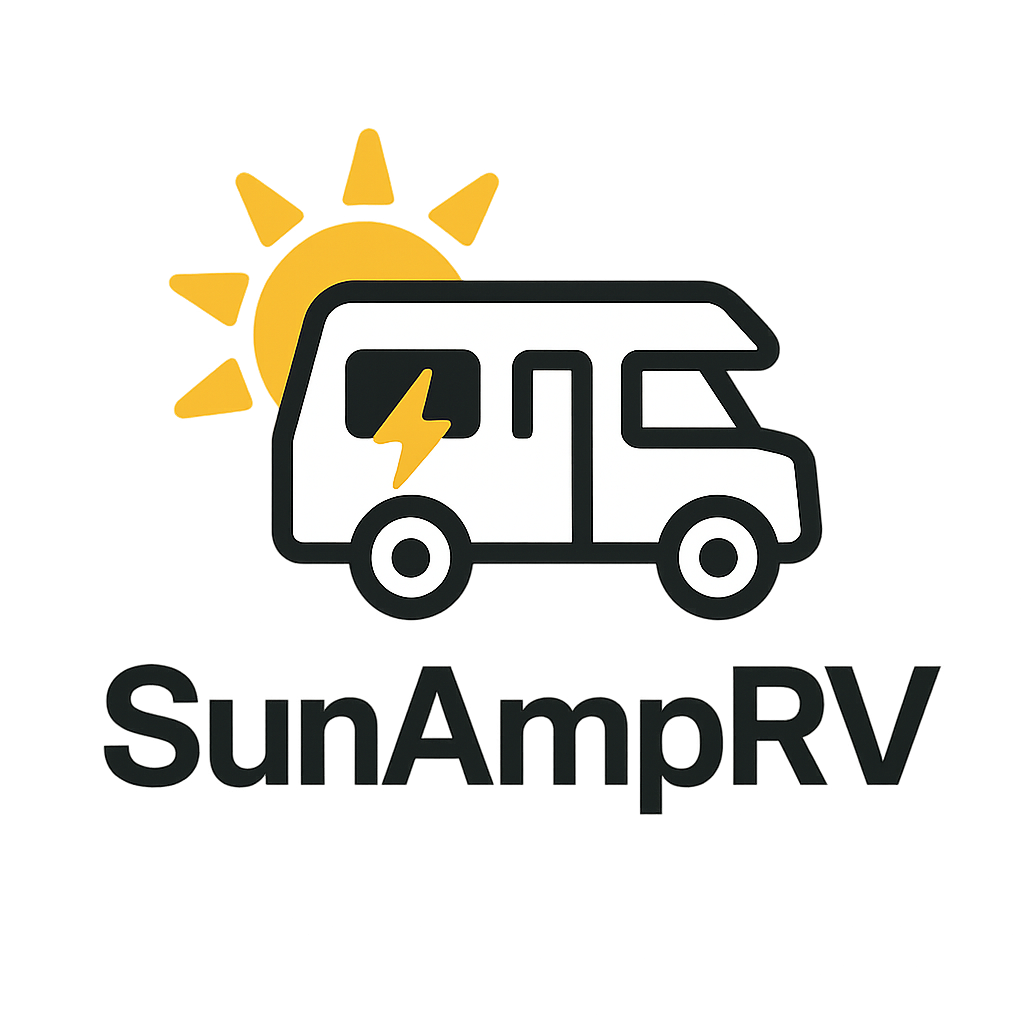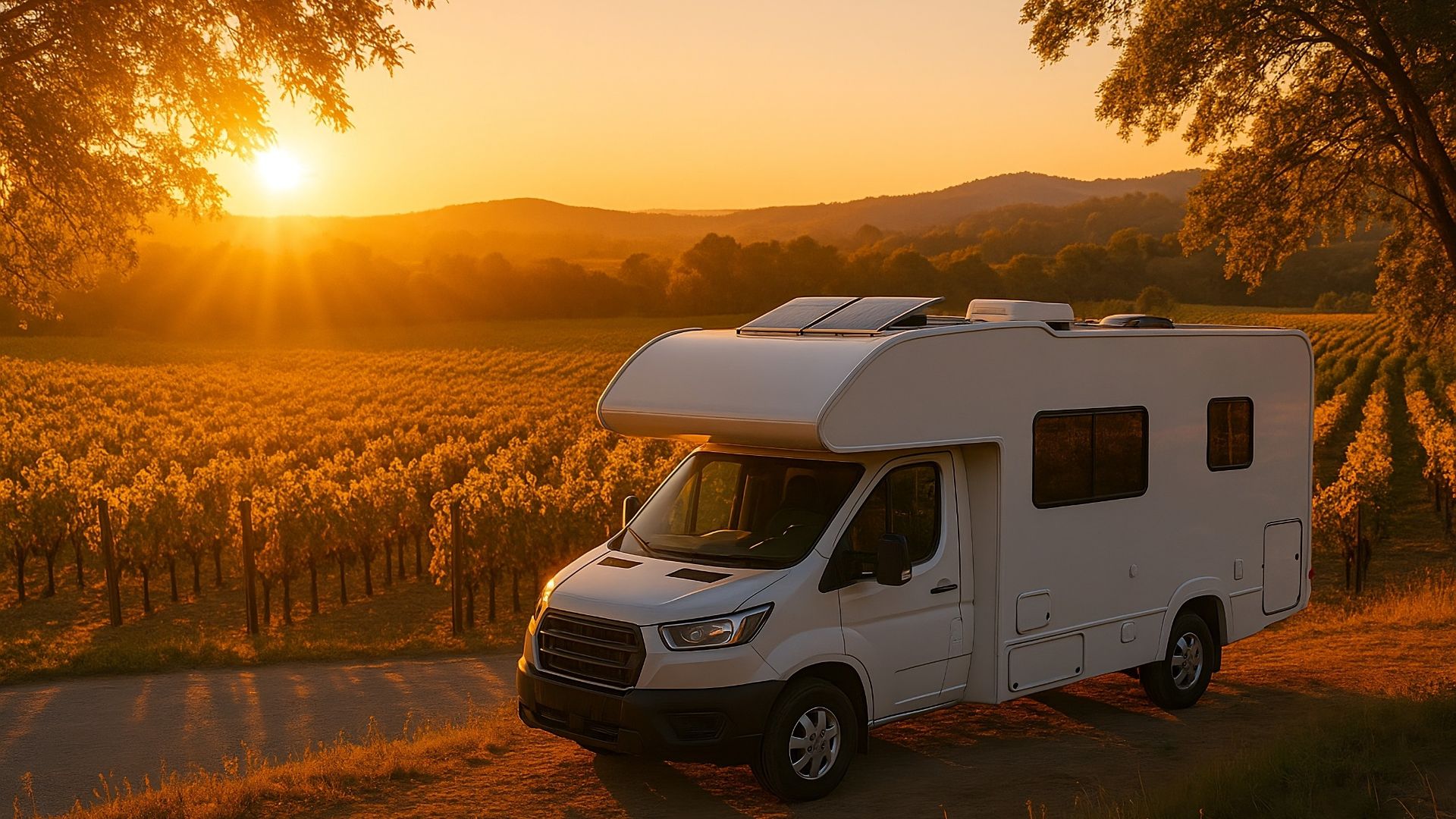
When planning a road trip with your RV, one crucial consideration is how to power your appliances efficiently and quietly. Two popular options are RV inverters and generators. Choosing between them involves understanding their differences, noise levels, and installation processes. This article delves into these aspects and provides guidance on selecting the best option for your needs.
Understanding RV Inverters
RV inverters convert DC power from your RV’s batteries to AC power, which can be used to run household appliances. They are generally quieter than generators and are suitable for RV enthusiasts looking for a silent power solution. Inverters are particularly useful when paired with solar panels, offering an eco-friendly way to stay powered on the go.
Benefits of RV Inverters:
– Silent operation
– Environmentally friendly
– Efficient for sustained use with solar panels
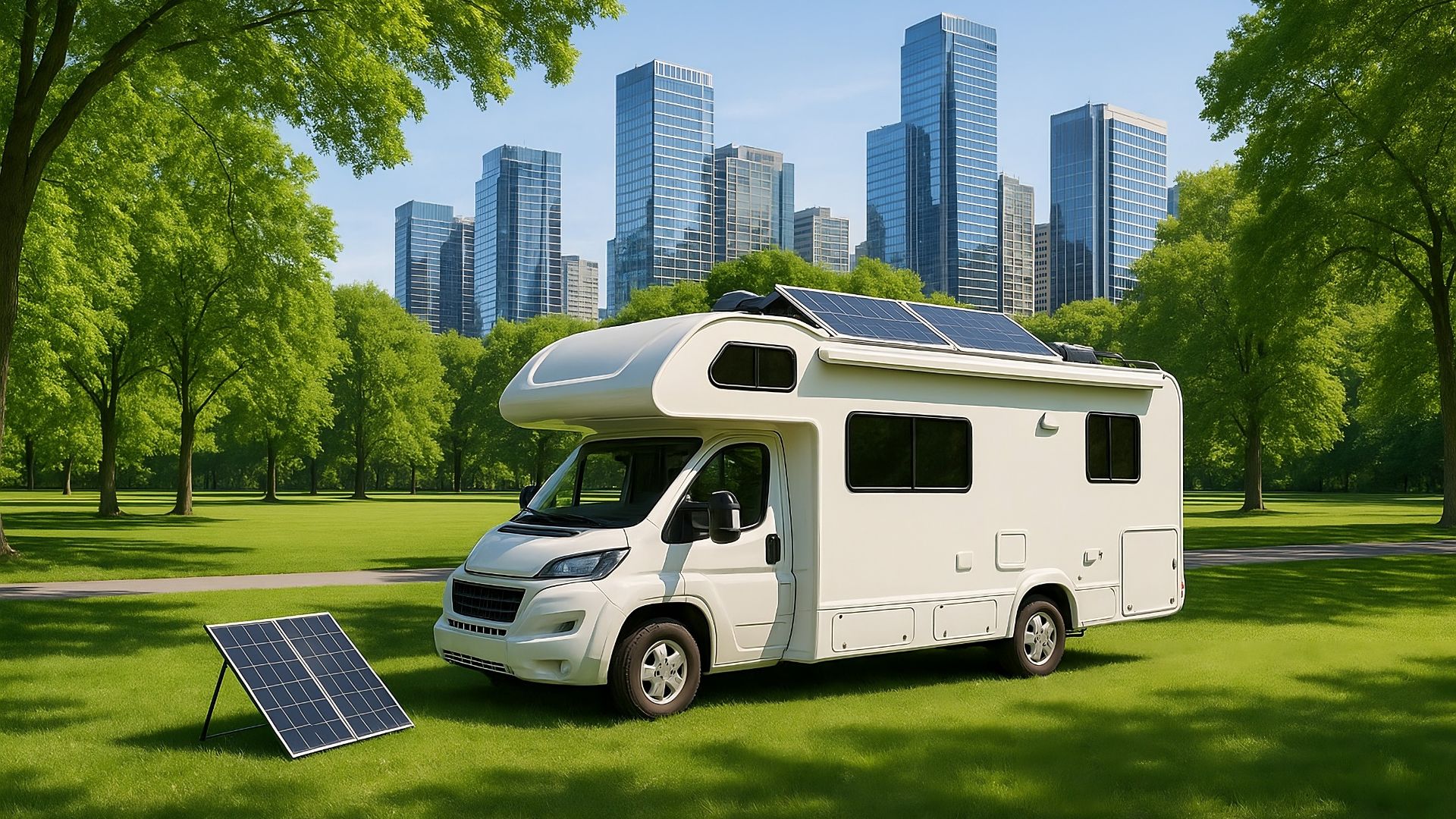
For those interested in solar options, consider the Renogy 200W Solar Starter Kit for a reliable and efficient setup.
Exploring RV Generators
RV generators provide power by converting fuel into electrical energy. While generators can supply more power than inverters, they tend to be noisier. However, modern models have made strides in reducing noise levels, making them a viable option for those needing substantial power.
Advantages of RV Generators:
– High power output
– Suitable for running large appliances
– Reliable backup power source
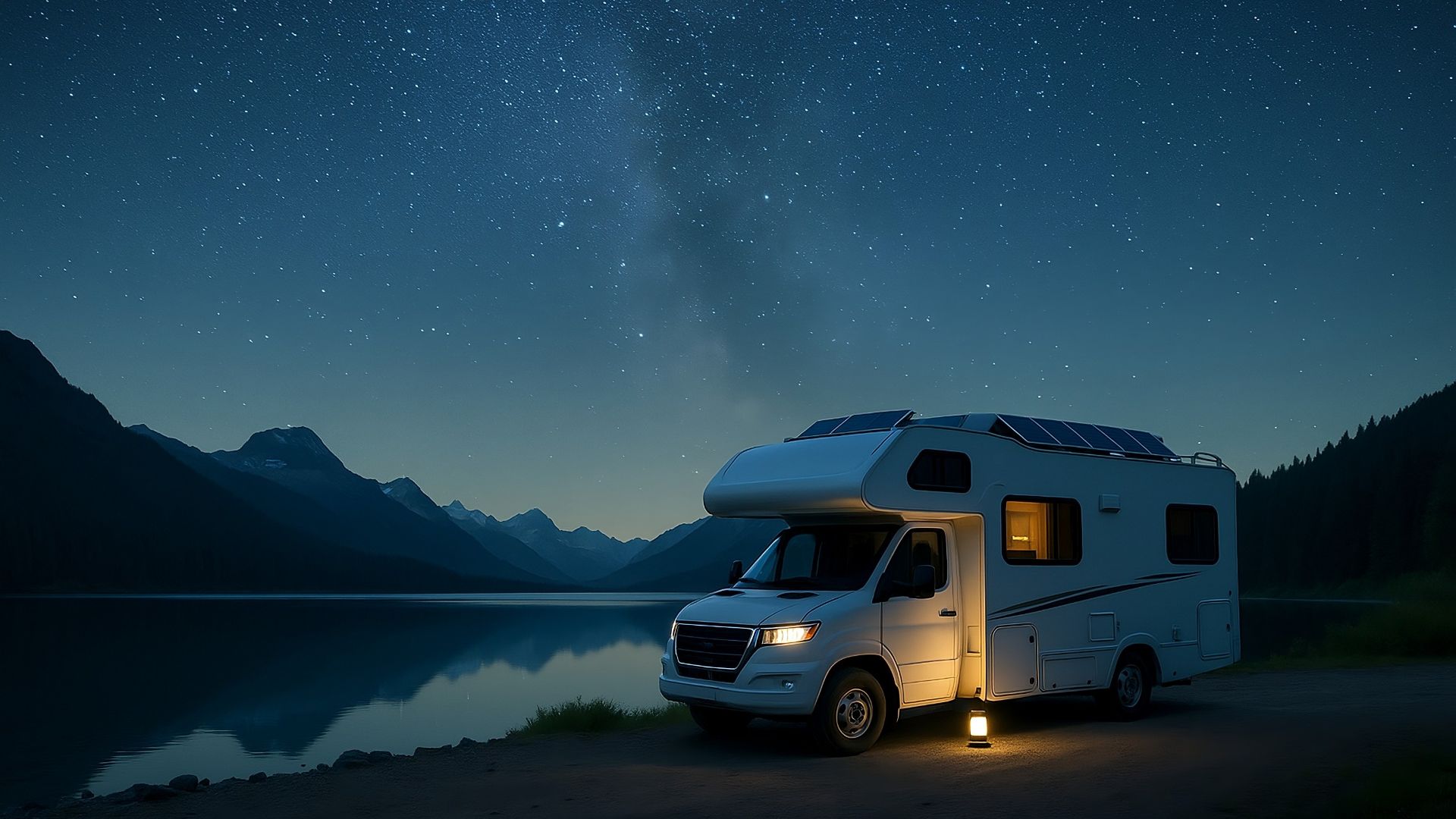
For a quieter generator option, the EcoFlow DELTA Max 2016 Wh Power Station offers impressive power with reduced noise.
Quiet Operation: Inverters vs. Generators
One of the most significant factors for RV users is the noise level of their power source. Inverters, especially those used with batteries, are virtually silent, making them ideal for use in campgrounds or quiet natural settings. Generators, while traditionally loud, have models that focus on quieter operation, though they rarely match the silence of inverters.
For a noise-conscious solution, the Jackery Explorer 1000 Portable Power Station provides a balance of power and quiet operation.
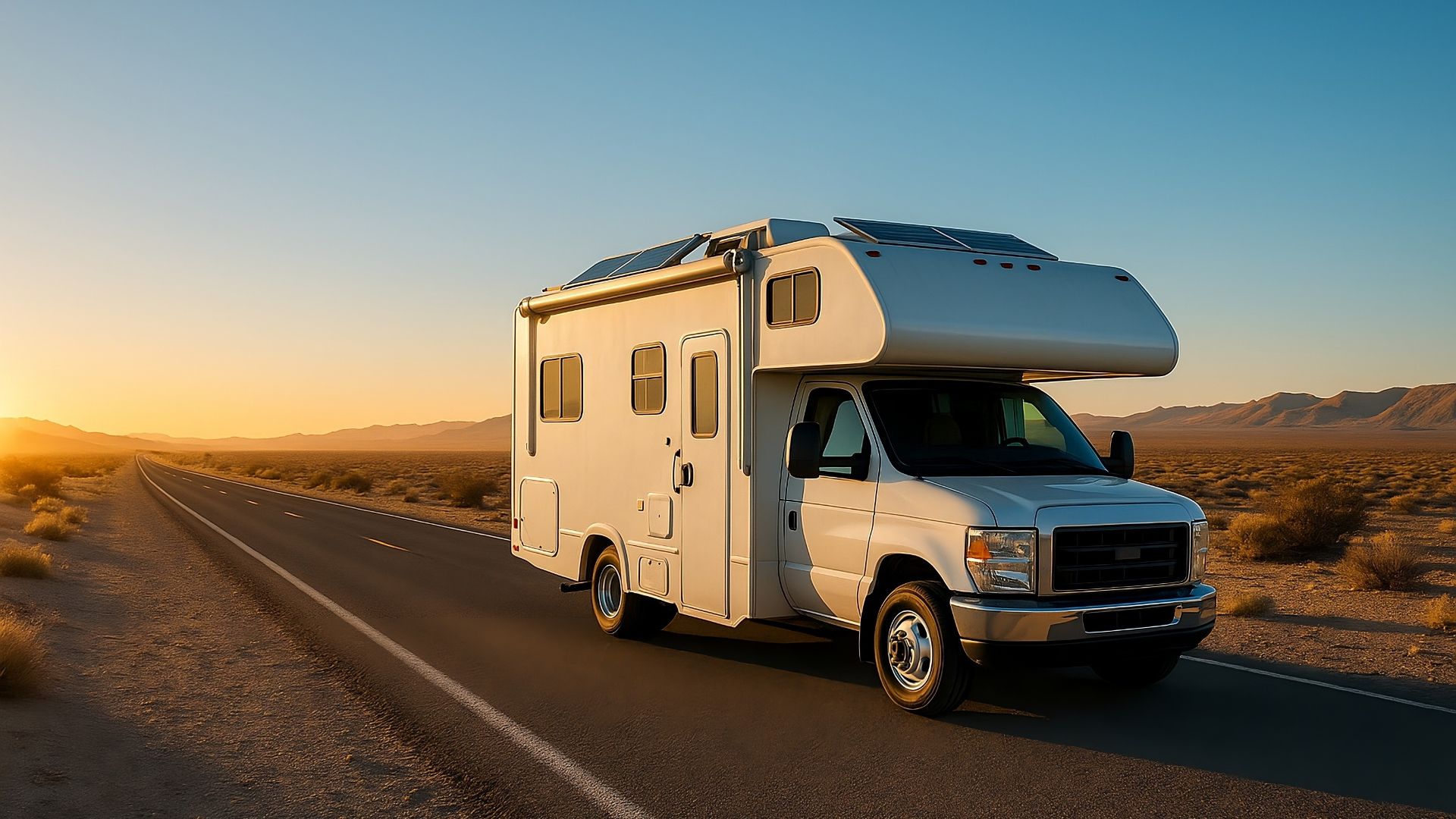
Choosing the Right Solution
When deciding between an inverter and a generator, consider your power needs, environmental concerns, and budget. Here are some factors to contemplate:
- Power Requirements: Evaluate the wattage needed for your appliances.
- Noise Sensitivity: Choose a quieter option if you prefer a peaceful environment.
- Fuel Availability: Consider the ease of refueling a generator versus charging an inverter.
- Environmental Impact: Inverters paired with solar panels are a greener choice.
For a comprehensive solar setup, the Zamp 140 W Folding Solar Kit offers portability and efficiency.
Installation Steps for an RV Inverter
Installing an RV inverter requires some technical know-how. Follow these steps for a successful installation:
- Select the Right Inverter: Choose an inverter compatible with your power needs.
- Prepare the Battery Bank: Ensure your batteries are in good condition and fully charged.
- Mount the Inverter: Securely mount the inverter in a well-ventilated area inside your RV.
- Connect the Cables: Use appropriate cables to connect the inverter to your battery bank.
- Test the System: Power on the inverter and test it with your appliances.
- Monitor Performance: Regularly check the system for efficiency and any issues.
For efficient battery usage, consider the Battle Born 100 Ah LiFePO4 Battery for long-lasting power.
Conclusion
Both RV inverters and generators have their place in the world of RV travel, each offering unique benefits. Inverters provide quiet, eco-friendly power, while generators offer robust energy solutions for larger needs. By understanding your requirements and considering the installation process, you can make an informed decision that enhances your RV experience.
For those seeking a versatile power solution, the Goal Zero Yeti 1000X Portable Power Station combines portability with power.
Navigating the choice between an inverter and a generator involves weighing noise levels, power needs, and environmental impact. With the right setup, your RV adventures can be both sustainable and serene.
